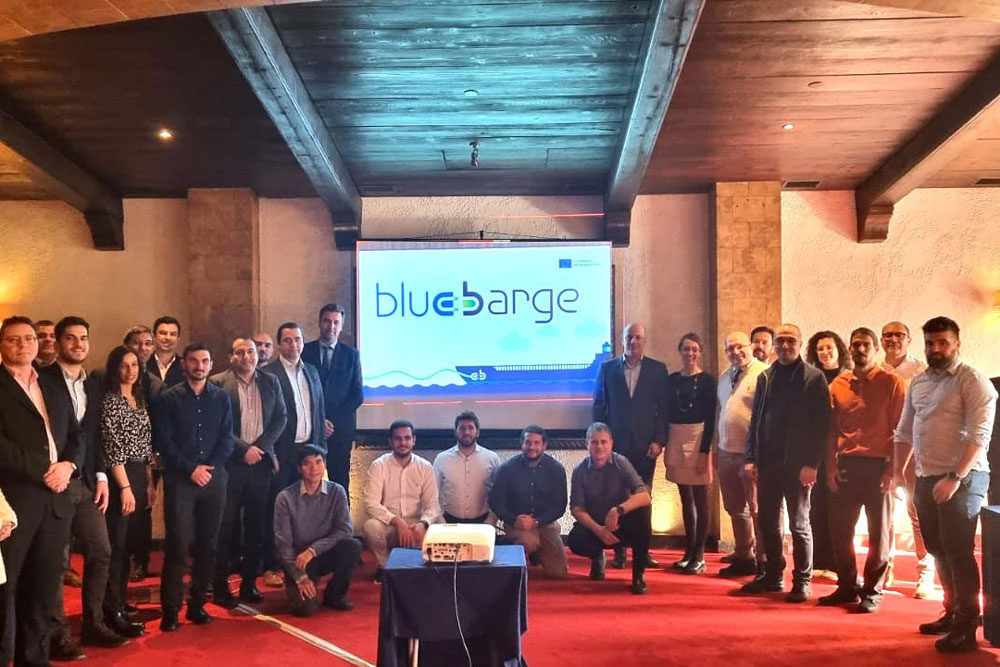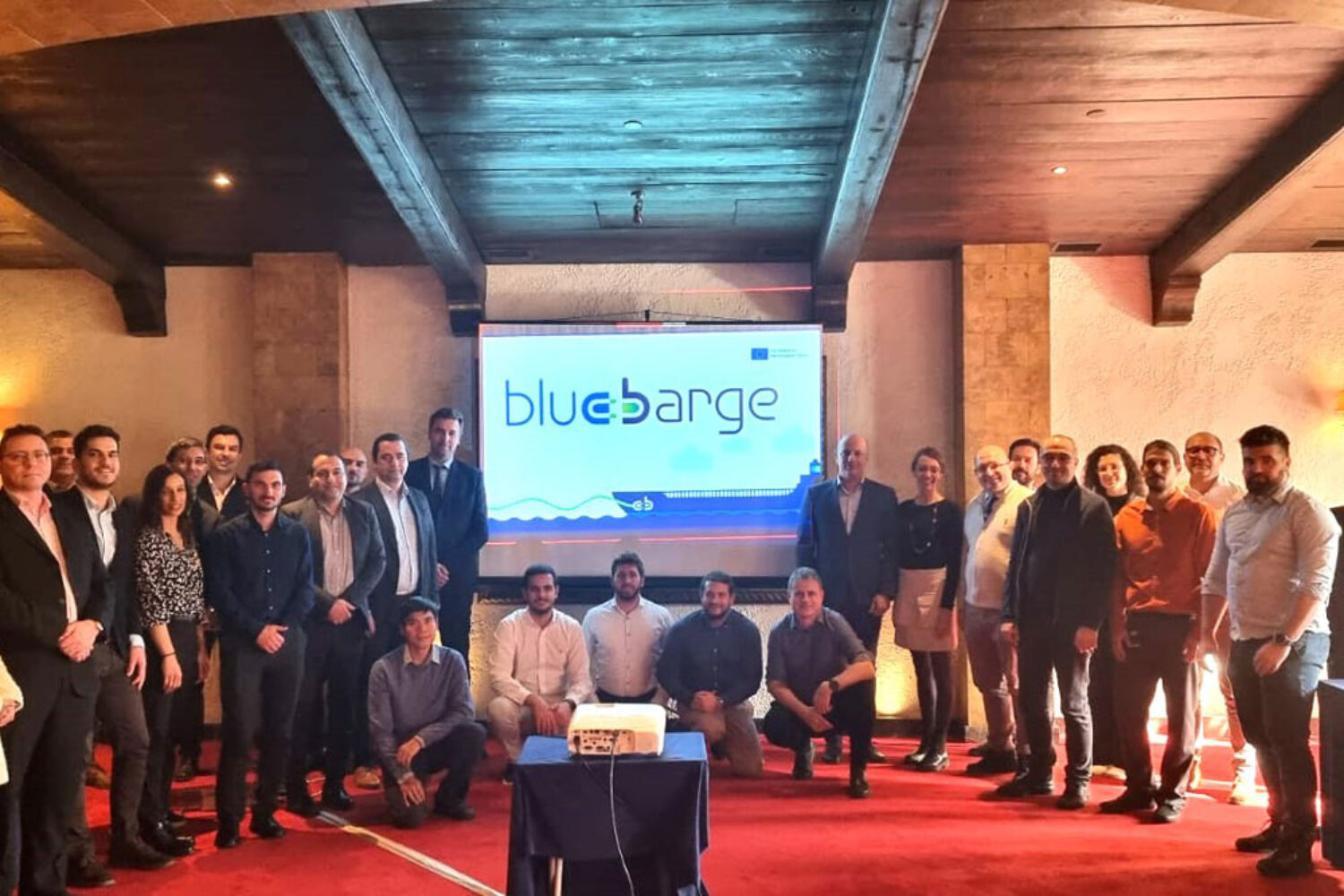In the “Blue Barge” project, 14 European partners have joined forces to develop an external platform for supplying power to ships – including ABS.
The US Classification Society American Bureau of Shipping (ABS) is participating in the project, which is funded by the Horizon Europe program, through its Greek branch in Athens. ABS will lead the 36-month, €11 million project and will assist the consortium with safety, classification and regulatory compliance [ds_preview].
The primary aim of the Blue Barge project is to supply ships with electricity while they are in port to reduce emissions. A power supply for moored and anchored ships is being investigated. The focus is on challenges relating to electrical integration and connecting the platform to ships, ports, and local grids. It also deals with aspects of operational safety and regulatory compliance.
“ABS supports innovative electrification projects for ship owners, shipyards and other stakeholders worldwide. We are well-positioned to leverage our deep industry knowledge to advance electrification and power connectivity technologies and understand the risks as vessels and infrastructure become increasingly electrified and connected. ABS is looking forward to working with such a great consortium to support the maritime industry in achieving the electrification and decarbonization goals of the European Union and the international community,” said Konstantinos Voutzoulidis, ABS Business Development Manager and Head of Europe for Contracted Research and Development.
Blue Barge reduces emissions
The International Maritime Organization(IMO) has set the goal of halving greenhouse gas emissions from shipping by 2050 compared to 2008 levels. To this end, Blue Barge is to design, develop and demonstrate an optimal power barge solution.
A modular, scalable, adaptable and flexible design approach will be pursued to facilitate commercialisation by 2030. The proposed power bar solution will consider various alternatives as containerised power supply modules in a variety of configurations, with battery modules serving as the basis due to their high energy efficiency and operational readiness, as well as other modules under consideration including hydrogen fuel cells and hydrogen generators.
The project will address issues of electrical integration, interfaces between the barge and ships, ports and the local power grid, as well as operational safety and regulatory compliance aspects to create a highly deployable and complete solution for power bunkering.














